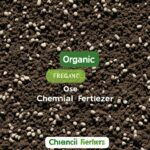Welcome to our guide on creating a medicinal garden filled with plants that have natural healing properties. By cultivating these plants in your own backyard, you can harness the power of nature to promote holistic healing and create your own backyard remedies. Whether you’re new to gardening or a seasoned green thumb, incorporating medicinal garden plants into your outdoor space is a wonderful way to support your overall well-being.
Imagine stepping outside and plucking a few leaves or flowers to create herbal remedies for common ailments. From soothing burns to relieving stress, these medicinal plants can make a significant difference in your daily life. In this article, we will explore the top 10 must-have medicinal garden plants and their healing abilities, empowering you to take a natural approach to your health and wellness.
Key Takeaways:
- Creating a medicinal garden allows you to harness the healing power of nature in your own backyard.
- Medicinal garden plants offer natural remedies for a variety of ailments and promote holistic healing.
- By incorporating these plants into your outdoor space, you can create your own backyard remedies.
- From soothing burns to reducing stress, medicinal garden plants provide versatile healing solutions.
- By cultivating these plants, you can take a natural approach to your health and well-being.
The Importance of Medicinal Garden Plants
Medicinal garden plants have been utilized for centuries as natural alternatives to conventional medicine, offering healing and wellness benefits. From the rejuvenating properties of healing herbs to the therapeutic effects of botanical plants, these plants have the power to promote holistic well-being. By cultivating a medicinal herb garden or incorporating healing plants into your existing garden, you can create a sanctuary of healing and wellness right in your backyard.
Imagine stepping into a tranquil herbal medicine garden, surrounded by fragrant and lush botanical healing plants. The therapeutic garden plants offer more than just aesthetic appeal—they can support your physical, mental, and emotional health. Whether you’re seeking relief from common ailments or aiming to maintain overall wellness, medicinal garden plants are a valuable addition to any home.
Botanical healing plants have been used by various cultures throughout history for their medicinal properties. These plants contain essential oils, compounds, and nutrients that contribute to their healing effects. When incorporated into your garden, these plants allow you to harness the power of nature and take a proactive approach to your well-being.
One of the advantages of cultivating a healing garden is the accessibility these plants provide to natural remedies. Instead of relying solely on pharmaceuticals or over-the-counter medications, you’ll have a therapeutic garden at your disposal, rich with healing herbs and medicinal plants.
Furthermore, the act of tending to your herbal medicine garden can be a form of relaxation and mindfulness. As you care for your plants, you’ll be connected to nature and engaged in the natural rhythms of growth and regeneration. The process of nurturing these botanical healing plants can be a source of solace and rejuvenation.
“A garden is a grand teacher. It teaches patience and careful watchfulness; it teaches industry and thrift; above all, it teaches entire trust.”
By cultivating a medicinal garden, you can take charge of your well-being and explore the incredible therapeutic properties of healing herbs and botanical healing plants. Your garden can be a source of empowerment, encouraging you to adopt a more holistic approach to health.

Benefits of Medicinal Garden Plants:
- Access to natural remedies for common ailments.
- Opportunity for holistic healing and wellness.
- Promotes a deeper connection with nature.
- Provides a sanctuary for relaxation and mindfulness.
- Encourages a proactive approach to health.
Whether you have a dedicated space for a medicinal garden or you simply incorporate healing plants into your existing landscape, the benefits are substantial. From improved physical well-being to enhanced mental and emotional health, medicinal garden plants offer a multitude of advantages.
Choosing the Right Plants for Your Medicinal Garden
Selecting the right plants for your medicinal garden is crucial to ensure you have a diverse range of healing properties at your disposal. By carefully considering the design of your garden and choosing organic medicinal plants that are free from pesticides and chemicals, you can create a plant-based medicine garden that offers a wealth of natural remedies for various ailments.
Designing Your Medicinal Herb Garden
When designing your medicinal herb garden, it’s important to consider factors such as sunlight, soil conditions, and space availability. Different plants have varying requirements, so ensure you place them in areas where they can thrive. Additionally, organize your garden in a way that is both visually appealing and practical, allowing easy access to your plants.
| Plant | Property | Usage |
|---|---|---|
| Aloe Vera | Soothing, anti-inflammatory, antibacterial | Treating burns, cuts, and minor skin irritations |
| Lavender | Calming, soothing | Anxiety reduction, relaxation, sleep aid |
| Echinacea | Immune-boosting, antibacterial, antiviral | Cold, flu, and respiratory infection relief |
| Peppermint | Digestive relief | Alleviating bloating, indigestion, and stomach discomfort |
Choosing Organic Medicinal Plants
Opting for organic medicinal plants ensures that your garden is free from harmful pesticides and chemicals. This not only promotes a healthier living environment but also ensures that the medicinal properties of your plants are untainted. Look for certified organic plants or consider growing your own from organic seeds or seedlings.
“By selecting organic medicinal plants, you not only support your own well-being but also contribute to the well-being of the environment.”
Creating a Plant-Based Medicine Garden
A plant-based medicine garden is a beautiful and sustainable way to incorporate natural remedies into your daily life. By growing a wide variety of medicinal plants, you can harness the power of nature’s medicine cabinet. From soothing aloe vera to immunity-boosting echinacea, your plant-based medicine garden can provide you with a plethora of options for improving your well-being.
Aloe Vera: The Healing Wonder
Aloe vera is a versatile plant known for its incredible healing properties. It has been used for centuries to treat various ailments due to its soothing, anti-inflammatory, and antibacterial effects. Incorporating aloe vera plants into your natural remedies garden can provide you with a valuable and effective solution for common issues such as burns, cuts, and minor skin irritations.
Rich in essential nutrients, aloe vera gel can accelerate the healing process and reduce inflammation. Its cooling sensation brings immediate relief and aids in the regeneration of damaged skin cells. This makes it an ideal natural remedy to have on hand for everyday mishaps and minor wounds.
One of the reasons aloe vera is so popular is its ease of cultivation. It thrives in warm climates and requires minimal maintenance, making it a great addition to any natural remedies garden. Whether you have a spacious backyard or a small balcony, you can easily grow aloe vera plants in pots or directly in the ground.
| Benefits of Aloe Vera: | How to Use Aloe Vera: |
|---|---|
|
|
Adding aloe vera plants to your natural remedies garden not only provides you with a versatile and effective healing remedy but also adds a touch of greenery to your outdoor space. Take advantage of the numerous benefits of aloe vera and harness the power of this extraordinary plant for your overall wellness and self-care.

Lavender: Calming and Soothing
Lavender is a popular medicinal plant known for its calming and soothing properties. Its delicate purple flowers and aromatic fragrance make it a delightful addition to any therapeutic garden.
This versatile herb not only adds beauty to your outdoor space but also offers numerous benefits for relaxation and well-being.
Research has shown that lavender can help reduce anxiety and promote a sense of calmness. Its soothing scent has a calming effect on the nervous system, helping to alleviate stress and tension. Inhaling the aroma of lavender essential oil can have a direct impact on the brain, promoting relaxation and improving mood.
Moreover, lavender is known to aid in sleep. Its sedative properties make it an excellent natural remedy for those struggling with insomnia or sleep disorders. By incorporating lavender into your therapeutic garden plants collection, you can create a tranquil environment that promotes restful sleep and rejuvenation.
Lavender can be used in various forms for its therapeutic benefits. Its essential oil can be diffused, added to bathwater, or applied topically to produce a calming effect. Dried lavender flowers can be used to make sachets or pillows, promoting relaxation and a restful sleep environment.
In addition to its calming properties, lavender also has antiseptic and anti-inflammatory qualities. It can help soothe minor skin irritations, such as insect bites, cuts, and bruises. The gentle nature of lavender makes it suitable for all skin types, making it a versatile addition to your natural remedies garden.

| Benefits of Lavender | Uses |
|---|---|
| Lowers anxiety and promotes relaxation | Diffuse lavender essential oil or make a lavender-infused tea for a calming effect |
| Aids in sleep and promotes restful sleep environment | Add dried lavender flowers to pillows or create a lavender-scented sachet for your bedside |
| Has antiseptic and anti-inflammatory properties | Apply lavender oil topically to soothe minor skin irritations |
Echinacea: Boosting Immunity
Echinacea, also known as the purple coneflower, is a powerful medicinal plant that has been used for centuries to boost the immune system. Its vibrant purple petals and spiky center make it a beautiful addition to any medicinal garden. But its benefits go beyond aesthetics. Echinacea is an excellent natural remedy for colds, flu, and other respiratory infections.
One of the key reasons why echinacea is so effective in supporting the immune system is its antibacterial and antiviral properties. It contains compounds that help stimulate the production of white blood cells, which play a crucial role in fighting off infections and diseases. By including echinacea in your medicinal garden, you can enhance your body’s natural defenses and promote overall health and well-being.
“Echinacea is a versatile plant that has been used for centuries in natural healing practices. Its immune-boosting properties make it a valuable addition to any medicinal garden.”
In addition to its immune-boosting benefits, echinacea also has anti-inflammatory properties, making it useful for relieving symptoms of inflammation-related conditions, such as arthritis. It can also help speed up the healing process for wounds and skin infections.
How to Grow Echinacea
Echinacea is a hardy perennial that thrives in well-drained soil and full sunlight. It is relatively low-maintenance and can tolerate drought conditions once established. Here are some key tips for growing echinacea in your medicinal garden:
- Choose a sunny spot in your garden for optimal growth.
- Plant echinacea seeds or seedlings in well-drained soil.
- Water regularly, especially during dry periods.
- Deadhead spent flowers to encourage continuous blooming.
- Divide mature plants every few years to maintain their vigor.
By following these simple guidelines, you can enjoy a bountiful harvest of echinacea flowers and reap the benefits of this exceptional medicinal plant.

| Benefits of Echinacea | How to Use Echinacea |
|---|---|
|
|
Echinacea can be consumed in various forms, including supplements, teas, tinctures, and as an ingredient in homemade herbal remedies. It is important to follow the recommended dosages and consult with a healthcare professional before starting any new herbal regimen.
Embrace the power of echinacea in your medicinal garden and harness its natural healing properties to support your immune system and overall well-being.
Peppermint: Digestive Relief
Peppermint is a well-known herb that has been used for centuries to alleviate digestive issues. With its refreshing aroma and cooling properties, peppermint offers natural relief for various gastrointestinal discomforts, including bloating, indigestion, and stomach pain. This healing herb contains menthol, which helps relax the muscles of the gastrointestinal tract, reducing spasms and promoting smooth digestion.
Cultivating peppermint in your healing herbs garden can provide you with a readily available and natural remedy for digestive relief. This versatile herb can be used in various forms, including fresh leaves, dried tea, or essential oil, allowing you to tailor the treatment to your specific needs.
To make a soothing peppermint tea:
- Boil a cup of water.
- Add 1-2 teaspoons of dried peppermint leaves or a handful of fresh leaves.
- Let it steep for 5-10 minutes.
- Strain the tea and enjoy its calming effects.
Incorporating peppermint into your daily routine can provide relief from digestive discomforts, leaving you feeling refreshed and rejuvenated. However, it’s essential to consult with a healthcare professional before using peppermint as a treatment, especially if you have underlying health conditions or are taking medications.
“Peppermint has long been used to relieve digestive ailments, thanks to its soothing and antispasmodic properties. It’s a versatile herb that can be grown easily and added to different home remedies to alleviate bloating, indigestion, and stomach discomfort.”

Peppermint is a valuable addition to any healing herb garden, offering a natural and effective solution for digestive relief. Try incorporating this versatile herb into your garden and explore the myriad of benefits it has to offer.
Chamomile: Calming and Relaxing
Chamomile, an age-old herb renowned for its calming and soothing properties, is a popular choice for promoting relaxation and easing anxiety. Whether enjoyed as a comforting cup of tea or used topically to alleviate skin irritations, chamomile offers natural remedies that aid in finding peace and tranquility. By cultivating chamomile in your herbal medicine garden, you can create a sanctuary of calmness and relaxation right in your backyard.
“Chamomile is a gentle and soothing herb that has been used for centuries to promote relaxation and ease anxiety.”
Consuming Chamomile
One of the most common ways to experience the calming effects of chamomile is by brewing a cup of chamomile tea. The warm infusion releases the herb’s essential oils, creating a delightful aroma and a soothing beverage. Sip on a cup of chamomile tea before bedtime to help promote a restful sleep or anytime you need a moment of tranquility throughout the day.
Topical Application
Chamomile can also be used topically to soothe skin irritations and promote healing. Create a simple chamomile-infused oil by steeping chamomile flowers in carrier oil, such as almond or coconut oil, for a few weeks. The resulting oil can be applied to minor burns, rashes, or insect bites to provide relief and aid in the healing process.
Benefits of Cultivating Chamomile
Cultivating chamomile in your herbal medicine garden offers numerous benefits. Aside from its calming properties, chamomile is also known for its anti-inflammatory, antispasmodic, and antibacterial effects. The presence of chamomile in your garden attracts beneficial insects, such as bees and butterflies, contributing to a thriving and harmonious ecosystem.
Chamomile Tea Recipe
Try this simple chamomile tea recipe to enjoy its calming benefits:
- Boil water in a kettle.
- Place 1-2 teaspoons of dried chamomile flowers in a teapot or infuser.
- Pour the hot water over the chamomile flowers.
- Let steep for 5-10 minutes.
- Strain the tea into a cup and enjoy.
Embrace the soothing power of chamomile in your herbal medicine garden to create a haven of calming and relaxation. Let the gentle allure of chamomile permeate your senses and nurture your well-being.

Ginger: Anti-Inflammatory Powerhouse
Ginger is a potent root that possesses remarkable anti-inflammatory properties. Its numerous health benefits make it a valuable addition to any natural remedies garden. Let’s explore how ginger can help alleviate discomfort, reduce inflammation, and promote digestive health.
Alleviating Muscle and Joint Pain
Ginger has long been used as a natural remedy for relieving muscle and joint pain. The anti-inflammatory compounds found in ginger, such as gingerols and shogaols, help to reduce swelling and alleviate discomfort. Regular consumption of ginger or topical application of ginger oil can provide relief from conditions like arthritis, muscle strains, and sprains.
Reducing Inflammation
Chronic inflammation can contribute to various health issues, including heart disease, diabetes, and autoimmune conditions. Ginger’s potent anti-inflammatory properties make it an effective natural remedy for reducing inflammation in the body. Regular consumption of ginger can help alleviate inflammation and support overall health and well-being.
Supporting Digestive Health
Ginger has been used for centuries to support healthy digestion. It aids in the production of digestive enzymes, stimulates the flow of bile, and improves nutrient absorption. Ginger is particularly effective in alleviating nausea, indigestion, and stomach discomfort. Adding fresh ginger to tea, incorporating it into meals, or taking ginger supplements can promote digestive health and provide relief from gastrointestinal issues.

By including ginger in your natural remedies garden, you can harness its anti-inflammatory properties to alleviate muscle and joint pain, reduce inflammation, and support healthy digestion. This versatile root offers a multitude of health benefits and can be easily incorporated into your daily routine for natural, holistic healing.
Calendula: Skin Healing Marvel
Calendula, also known as marigold, is a beautiful plant that possesses remarkable skin healing abilities. This vibrant flower is not only visually appealing but also offers a multitude of benefits for maintaining healthy skin. Incorporating calendula into your collection of botanical healing plants can provide you with a natural and gentle solution for skincare.
One of the key advantages of calendula is its ability to soothe various skin irritations. Whether you’re dealing with dryness, rashes, or mild burns, calendula can help alleviate discomfort and promote healing. Its anti-inflammatory properties work to calm inflammation, reducing redness and swelling.
Furthermore, calendula has proven highly effective in wound healing. Its antiseptic and antimicrobial properties help prevent infections and support the regeneration of damaged skin tissue. By applying calendula-infused ointments or creams, you can accelerate the healing process and minimize scarring.
To fully embrace the benefits of calendula for skincare, consider incorporating this healing marvel into your beauty routine. You can find skincare products containing calendula extract, such as creams, lotions, or even face masks. Alternatively, you can create your own natural skincare remedies by infusing calendula petals into carrier oils or preparing soothing homemade salves.

Rosemary: Memory and Focus Booster
Rosemary is an aromatic herb known for its memory-enhancing and focus-boosting properties. It has been used for centuries for its potent medicinal benefits and its ability to support brain health and vitality. Whether you’re studying for an important exam or looking to sharpen your cognitive skills, incorporating rosemary into your therapeutic garden plants selection can provide you with a natural and effective remedy.
Research suggests that rosemary contains compounds that can stimulate the brain, improve memory, and enhance mental clarity. The scent of rosemary has been found to have a positive impact on cognitive performance, helping to improve focus and concentration. The herb’s ability to reduce fatigue and mental exhaustion can also contribute to improved productivity and overall well-being.
To enjoy the memory-boosting benefits of rosemary, you can incorporate it into your daily routine in various ways:
- Infuse rosemary leaves in hot water to make a refreshing and invigorating tea.
- Add fresh or dried rosemary to your cooking, such as roasted vegetables, soups, or marinades.
- Create an essential oil blend with rosemary and use it in aromatherapy diffusers or massage oils for a calming and focused atmosphere.
By growing rosemary in your therapeutic garden, you’ll have easy access to this powerful herb whenever you need a cognitive boost. Its fragrant leaves and delicate purple flowers also add beauty and aroma to your outdoor space, creating a sensory oasis for relaxation and well-being.
Remember, while rosemary is generally safe for most people, it’s always important to consult with a healthcare professional before using it as a remedy, especially if you have any existing medical conditions or are taking medications.
“The fragrant aroma of rosemary not only enhances the taste of your dishes but also has a positive impact on your brain, improving memory and focus.”

| Benefits of Rosemary | How to Use Rosemary |
|---|---|
| Improves memory and cognitive function | – Make rosemary tea by infusing the leaves in hot water. – Incorporate fresh or dried rosemary into your cooking. – Use rosemary essential oil in aromatherapy. |
| Enhances focus and mental clarity | – Add rosemary to your study or work environment. – Diffuse rosemary essential oil during periods of concentration. |
| Reduces fatigue and mental exhaustion | – Use rosemary-infused massage oils for relaxation. – Enjoy a cup of rosemary tea to refresh and invigorate. |
Follow us on Pinterest for more gardening inspiration and tips: GardenPlantSeed. Join our community of garden enthusiasts today!
Conclusion
Cultivating a medicinal garden with these essential plants can provide you with a wealth of natural remedies for various ailments. Each plant, from aloe vera for burns to lavender for relaxation, brings its unique healing properties to your backyard. By harnessing the power of nature, you can create a holistic healing space that promotes wellness and self-care.
Embrace the benefits of these medicinal garden plants and embark on a journey towards natural wellness. Whether you’re seeking relief from digestive issues, boosting your immune system, or soothing skin irritations, these plants offer effective and sustainable solutions. Say goodbye to synthetic medications and embrace the healing gifts that nature has to offer.
Transform your outdoor space into a sanctuary of healing and well-being with a diverse selection of botanicals. By carefully selecting and caring for these medicinal plants, you can enhance your physical, mental, and emotional well-being. Start your own medicinal garden today and experience the power of natural remedies in the comfort of your own home.





